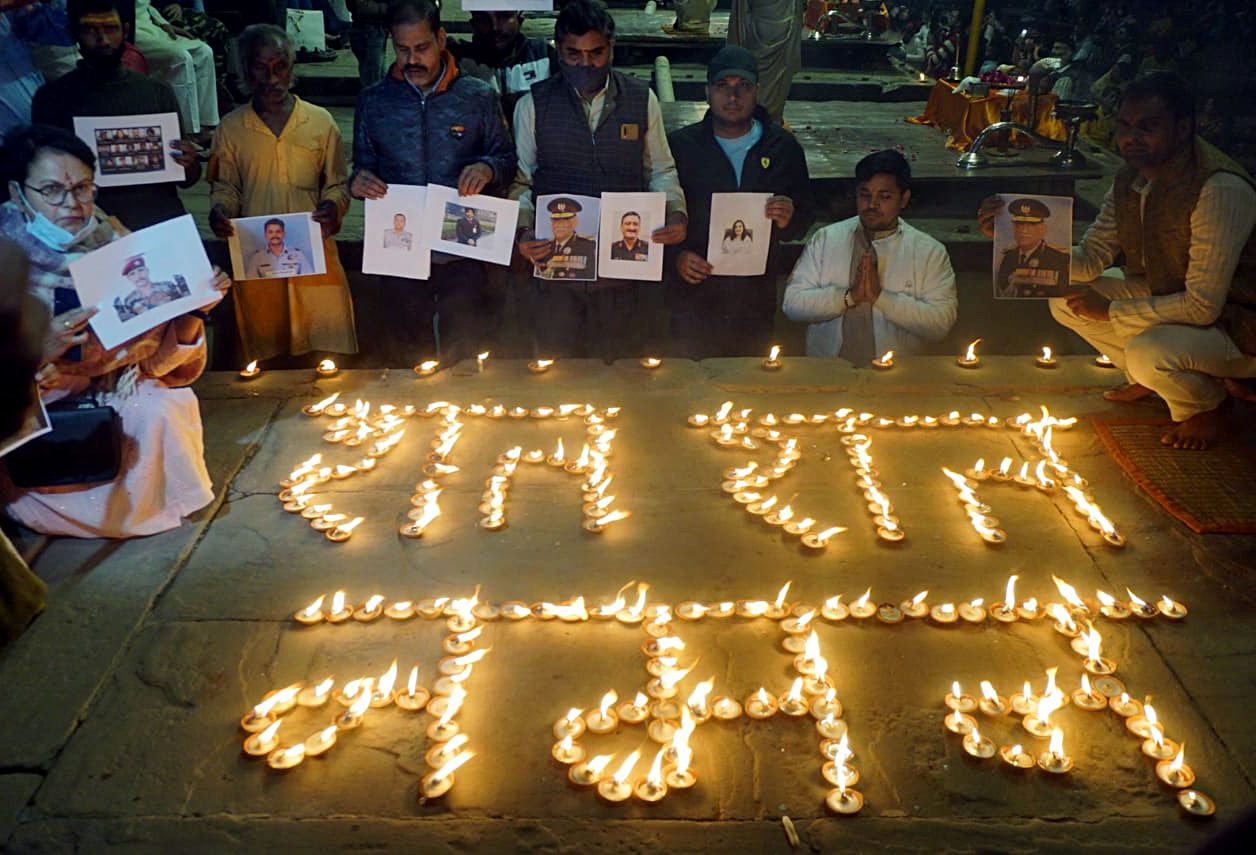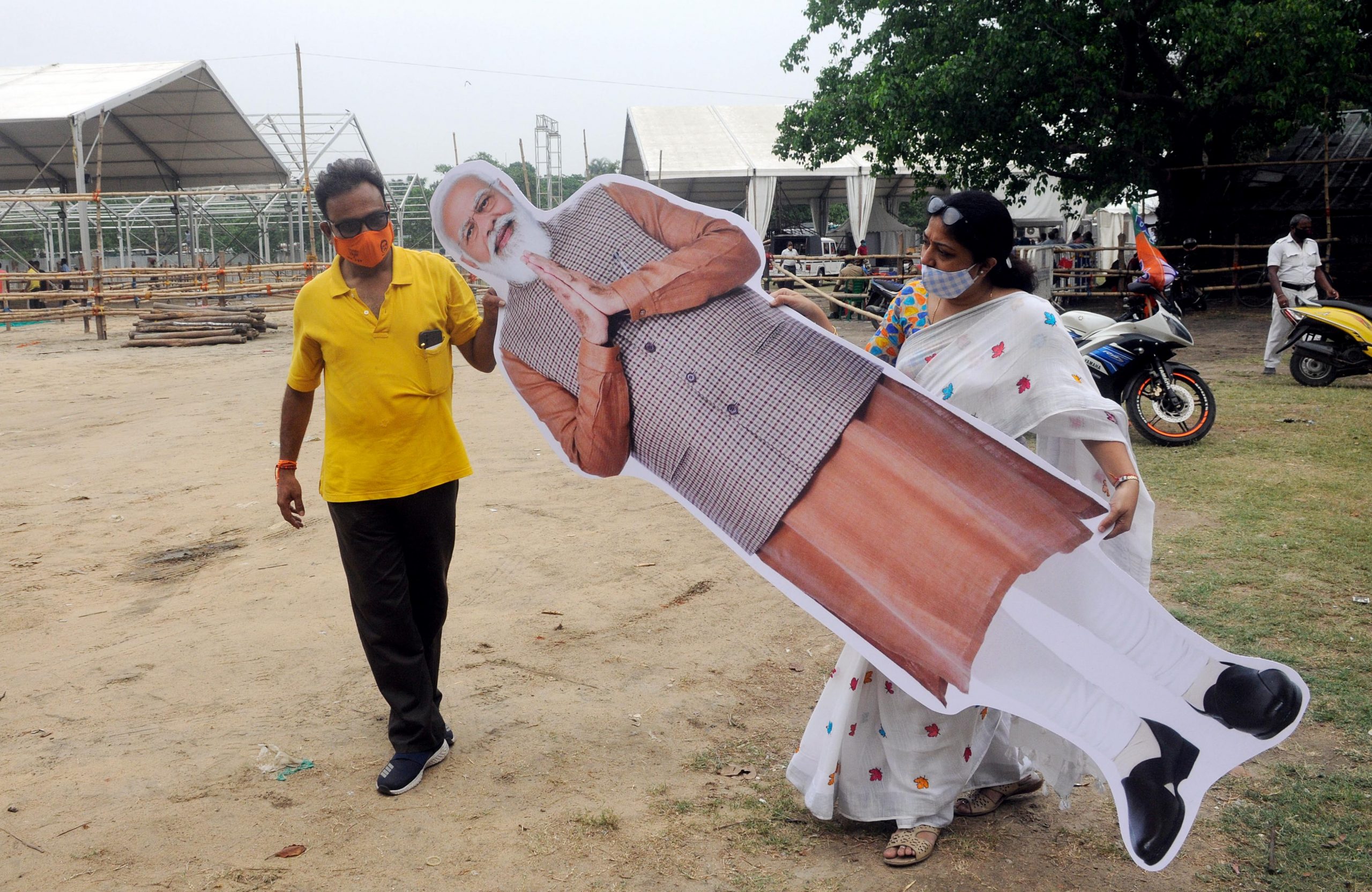In Myanmar, China’s interests lie in its economic and strategic significance by accessing the Indian Ocean directly. China’s unstoppable support of the Junta benefits its short- and long-term interests
Dr. Anuradha Oinam
On February 1, 2024, Myanmar completed its three years of military regime under the leadership of Min Aung Hlaing. Since the February Coup in 2021, Myanmar has been in turmoil, with intense violence and humanitarian crisis coupled with widespread displacement because of the violent clash between the military forces and non-state armed groups called Ethnic Armed Organizations (EAOs). One of the salient features of the long-running civil war is the involvement of the majority Barman ethnic group allying with other rebel groups in the pro-democracy movement against the military. Another feature amidst the complexity is the battle between those who want to restore democracy and those who support the military junta, given Myanmar’s vital geo-strategic and geo-political significance in the region. This article explores the February coup and assesses the role of rebel groups, especially after Operation 1027, which was launched by the Three Brotherhood Alliance. It further explicates the great powers’ game amid the civil war in the changing geopolitical dynamics of Myanmar.
Myanmar’s military regime under the leadership of Min Aung Hlaing completed its three years on February 1, 2024. On the other hand, the people of Myanmar living within and abroad called the year 2024 the year of the Spring Revolution. Undeniably, the country has been in turmoil since Feb 2021. The simmering civil war continues with intense violence, a humanitarian crisis with widespread displacement because of the violent clash between the military forces and non-state armed groups called Ethnic Armed Organizations. It is estimated that a total number of 50,000 people have been killed, more than 660,000 people have been displaced since 27 October 2023 and 2.6 million people are displaced nationwide.
Push Factors
Myanmar, after a decade-long military regime, was all set to transition from military rule to democracy by conducting three successful elections between 2010 and 2020. With profound initiatives such as the release of political prisoners, press freedom and the functioning of political parties, people were hopeful for the new democratic transition. However, these hopes were shattered, and they felt betrayed by the 2021 coup. This military coup was not planned overnight, as the military had the liberty to function in the quasi-democratic government in 2011 and 2015, respectively. Bertil Lintner, an expert on Myanmar, states that “the military’s claim 2021 coup was not a coup but a constitutional change of government”. Since Feb 2021, Myanmar has been ranked as one of the most violent of the fifty wars worldwide, according to the Armed Conflict Location and Event Data Project (ACLED). With the suspension of the National League for Democracy (NLD) along with other democratic parties of Myanmar, Tatmadaw provided little room for the democratic leaders and the people of Myanmar.
The long-running conflict’s impact on Myanmar is multi-faceted. The country’s economy is affected due to disruption in trade routes, the burden on logistics and interruptions in ongoing international projects such as India-Myanmar- Thailand Trilateral Highways, KMMP and so on. Besides, human rights violations, including mass killings, crimes against humanity, arbitrary detention, war crimes, etc., are also reported. In addition, the military has used airstrikes and shelling, targeting the populated areas and villages where rebels are prominent.
Alliance of Rebel Groups
The conflict in Myanmar became more intense after ‘Operation 1027’ launched on 27 October 2023 by the Three Brotherhood Alliance, constituted by the Arakan Alliance (AA), Myanmar National Democratic Alliance Army (MNDAA), and Taang National Liberation Army (TNLA) against the Junta. In this pro-democracy movement, the involvement of the majority of the Barman ethnic group revolting against the military by allying with other ethnic rebels is one of the salient features. This new alliance formed by the EAOS from the country’s periphery and People’s Defense Forces (PDFs) comprised of the Bamar ethnic majority, which is concentrated in Myanmar’s Dry Zone, the heartland of the Bamar majority, is a new threat to Junta. These groups unite to fight against the military by keeping all their differences aside for a common goal towards democracy. Since Operation 1027, it is reported that more than 5,500 military troops have been either seized or murdered, along with 10 Brigadier generals. A total number of not less than 30,000 troops lost their lives since then.

The Acting President of the National Unity Government (NUG), Duwa Lashi La, in a press release on 1 February 2024, stated that the people of Myanmar “shattered a decades-old myth that the Myanmar people can never topple the military”. He appreciated the people of Myanmar for fighting against the junta with resilience, renewed resistance, sacrifice, unity, and momentum. He affirmed that the Spring Revolution (which began in Feb 2021) would become more assertive in the days to come with the support of like-minded friends such as Australia, Canada, the European Union, New Zealand, Norway, the Republic of Korea, Switzerland, the United Kingdom and the United States. Duwa Lashi La urged the world community to support the people of Myanmar to:
“Formally recognize the National Unity Government and its Ethnic partners. Increase direct financial, technical, material, and humanitarian assistance. Block the Junta’s access to arms, weapons, cash, and jet fuel. Reject any junta to launch a negotiated settlement as a lifetime.”
Amidst the complexity, another irrefutable facet of the conflict is the great powers’ interest in Myanmar, given its vital geo-strategic and geo-political significance. Myanmar, thus, has become a battleground between those who want to restore democracy and those who support the military junta. A case in point is the U.S./West’s sanctions on the Junta against China and Russia’s support of the coup.
China versus the West
In Myanmar, China’s interests lie in its economic and strategic significance by accessing the Indian Ocean directly. Another is procuring energy by developing an energy corridor through Kyaukpyu deep seaport and overcoming the Malacca dilemma. The third is to exert more influence in Naypyidaw by diluting the West’s influence. Hence, China’s unstoppable support of the Junta benefits its short- and long-term interests.
However, the Dragon plays a double role by balancing its relationship with rebel groups such as the United Wa State Army (UWSA) by supplying with “man-portable air-defense systems, howitzers, a wide range of mortars, rocket launchers, machine-guns and assault rifles and armored personnel carriers” (Lintner, 2019) in fighting against the junta. Reflecting on China’s policy in Myanmar, Lintner opines that “China is not interested in peace the way people in Myanmar see it, that is, a political solution to decades of ethnic wars. China doesn’t want either; it wants stability, which, for the time being, means a status it can use to achieve its geostrategic goals” (Zaw, 2019). For instance, China delegated its new special envoy for Myanmar to meet with the seven most potent ethnic Armed Organizations (EAOs) in December 2022. Instead of any decisive political solution, Beijing urged EAOs to maintain a distance from the West-backed NUG. Chinese diplomats often attempted to be peace brokers between the junta and the members of the Federal Political Negotiation and Consultative Committee (FPNCC). Still, it could not achieve any positive results.
Russia, which has been a friend of Myanmar for years, supports the military regime by supplying weapons such as aircraft. It is a way to contest its supremacy with the West. Myanmar and Russia recently conducted naval drills in the Andaman Sea. Besides, Russia and Myanmar signed several agreements, including the MoU for nuclear construction, in October 2023 to address Myanmar’s fuel and electricity crisis. Myanmar gains protection from the United Nations being with Russia while reducing its dependency on China. Russia, in return, finds a new gateway’ for itself, connecting the Western Indian Ocean with the Eastern Indian Ocean and further linking with South and Southeast Asia.
Unlike China and Russia, the U.S./West supports the NUG instead of the Junta. Just after the coup, they imposed sanctions on selected Myanmar military personnel or enterprises. They even used platforms like the ASEAN with like-minded nations like Malaysia, Singapore and Indonesia to restore democracy. They supported NUG, the National Unity Consultative Council, and other groups in reestablishing peace. However, ASEAN ‘s ‘five-point consensuses’ could not be implemented, and the whole effort did not bear fruitful results. On the contrary, countries like Indonesia and Thailand began to engage bilaterally with Myanmar.
India, which shares a 1643km long porous border with Myanmar, has been impacted brutally since Feb 2021 due to the influx of Myanmar refugees from across the border. Though India has called for the restoration of democracy, it plays a balanced approach, given the trans-border issues pertinent to immigration, insurgency, and drug trafficking, to safeguard its security interests. India provided fuel and weapons to the Junta. It is reported that Indian entities have delivered $51 million worth of military-related exports to Myanmar since Feb coup.
Assessment
The February coup is disparate from those earlier ones. Firstly, most of the Barman ethnic group allied with other rebel groups in the pro-democracy movement against the military. It has shifted a new paradigm in the civil war of Myanmar. Secondly, Myanmar becomes a battlefield for great power competition as China and Russia are supporting the coup against the U.S./West. Great powers are getting involved to showcase their power, influence, and values, similar to those proxy wars fought during the Cold War, but in their national interest. Thirdly, Naypyidaw is playing many cards and hedging with as many great powers as possible to maximize its power and achieve goals.
This article first appeared in the Web Articles section of the website (www.claws.in) of Centre for Land Warfare Studies, New Delhi


























